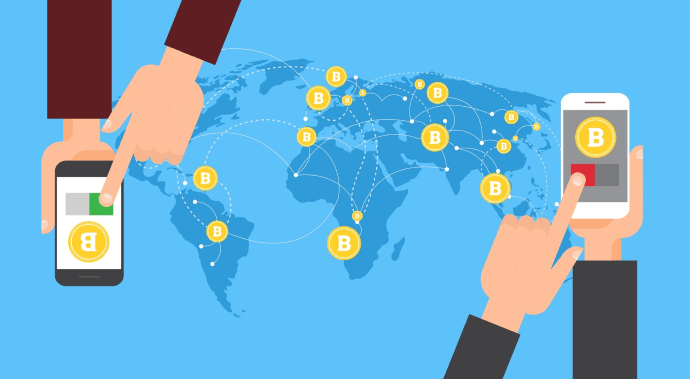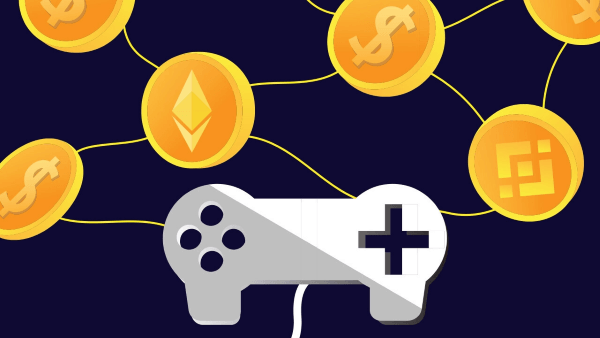The popularity of cryptocurrency has increased dramatically over the past few years as a result of people’s desire to use it as a substitute for traditional forms of capital. As a reflection of their enormous potential, cryptocurrencies have been the hottest topic of conversation ever since they were first introduced back in 2009 by an unidentified group of developers going by the nickname Satoshi Nakamoto.
However, let’s begin with a few brief definitions. Blockchain is the technology that, among other things, enabled cryptocurrencies to be created. Bitcoin is the most well-known cryptocurrency, and it was for it that blockchain technology was established. A cryptocurrency, like the US dollar, is a medium of exchange, but unlike fiat currencies, it is digital and uses encryption methods to manage the formation of monetary units and to authenticate the transfer of funds.
A blockchain is a decentralized ledger that records all transactions that take place on a peer-to-peer network. Participants can confirm transactions using this technology without the requirement for a central clearing organization. Applications might involve paying bills, concluding business deals, casting ballots, and a host of other things.
Yet, blockchain uses go far beyond Bitcoin and cryptocurrencies. Technology is affecting many different industries in ways that span from how contracts are implemented to making governments run more effectively. It can increase openness and justice while also saving businesses time and money.
It’s important to think about blockchain technology as a new breed of business process improvement software from a commercial standpoint. Blockchain and other collaborative technologies promise to significantly reduce the “cost of trust” by enhancing the commercial activities that take place between firms. Because of this, it might provide much larger returns for every dollar invested than the majority of conventional internal investments. Financial organizations are looking into how blockchain technology could revolutionize everything from insurance to clearing and settlement.
So, now that we made some things clearer, let’s explore some of the amazing ways that cryptocurrencies are being used in fields you probably hadn’t even considered.
Money transfer with cryptos

Transfer apps for cryptocurrencies are now experiencing an explosion in popularity, spearheaded by Bitcoin. Due to the time and money that blockchain may save financial institutions of all kinds, it is particularly popular within the industry. Blockchain can save the biggest banks a ton of money by decreasing third-party fees, getting rid of bureaucratic processes, and making ledger systems real-time.
This is due to the peer-to-peer nature of the cryptocurrency payment system, which enables users to send and receive money immediately around the world without requesting authorization from a third party or central agency. In addition, there are no fees associated with banking, overdrafts, returned deposits, etc.
Gaming applications

There is also good news for game enthusiasts. Nowadays, a new trend that has never been seen before has been generated by the growth of the gaming business combined with blockchain and cryptocurrency games. Games based on cryptocurrency are more popular, and there are several factors that contribute to this trend.
They are in charge of addressing some of the transactions and fraud issues that game producers and players face, notably in the iGaming industry, where bettors can even use mobile apps like the Bet365 app to bet with cryptos while staying anonymous and keeping all personally identifiable information secure.
Crypto-based games can have advantages in terms of payments that are simplified and decentralized, provide players a sense of ownership, and encourage more purchases by making items simple to transfer from one game to another.
Blockchains and the Internet of Things

The next logical explosion in blockchain applications is the Internet of Things (IoT). IoT offers a wide range of uses and several security issues, and as the number of IoT products rises, hackers will have more opportunities to steal your data via devices ranging from Amazon Alexa to smart thermostats.
By harnessing the transparency and theoretical incorruptibility of the technology to keep things “smart”, Internet of Things devices featuring blockchain technologies offer a greater level of security to prevent data breaches.
Healthcare industry benefiting from the rise of cryptos
Despite its early usage, blockchain in healthcare is already showing some potential. Early blockchain systems have really demonstrated the ability to lower healthcare expenses, increase stakeholder access to information, and simplify business procedures.
To ensure that an already bloated sector can reduce extravagant expenses, an innovative system for gathering and sharing private information may be exactly what the field was in need of.
Blockchains aiding the logistics sector

A significant issue in the shipping sector is the lack of transparency and communication brought on by the dense concentration of logistics firms. Over 500,000 shipping companies operate in the US, which leads to data siloing and transparency problems, according to a report commissioned by Accenture and logistics behemoth DHL. According to the paper, supply chain management and logistics are plagued by a number of issues that can be resolved by blockchain technology.
According to the study, blockchain creates data transparency by making a single source of truth visible. Blockchain can increase trust in the sector by recognizing data sources. Technology has the potential to save the logistics sector billions of dollars annually by streamlining and automating the process. Blockchain is a safe and affordable alternative for the logistics sector. These businesses are at the forefront of blockchain technology in logistics.

